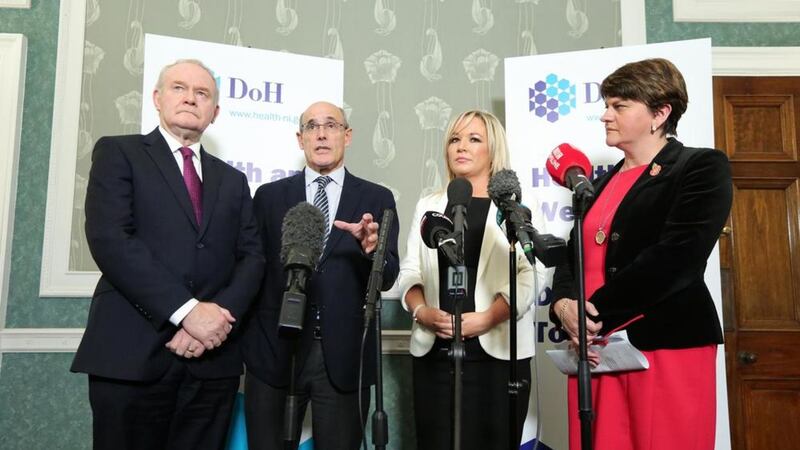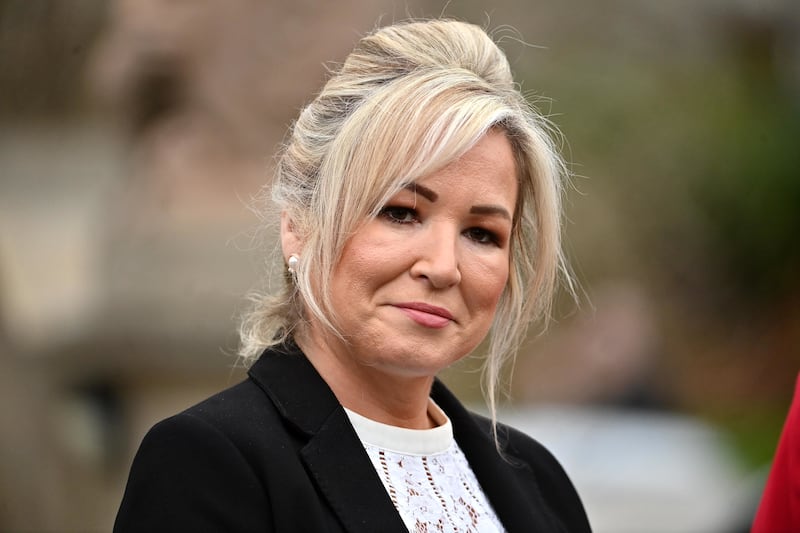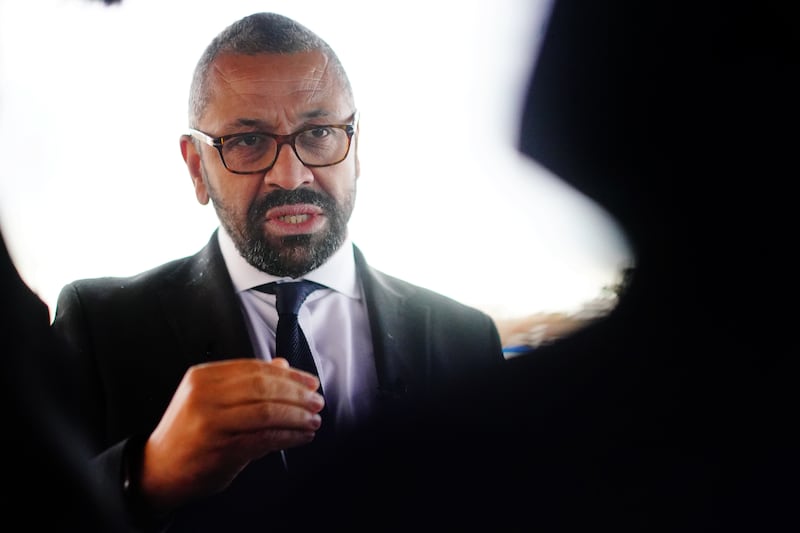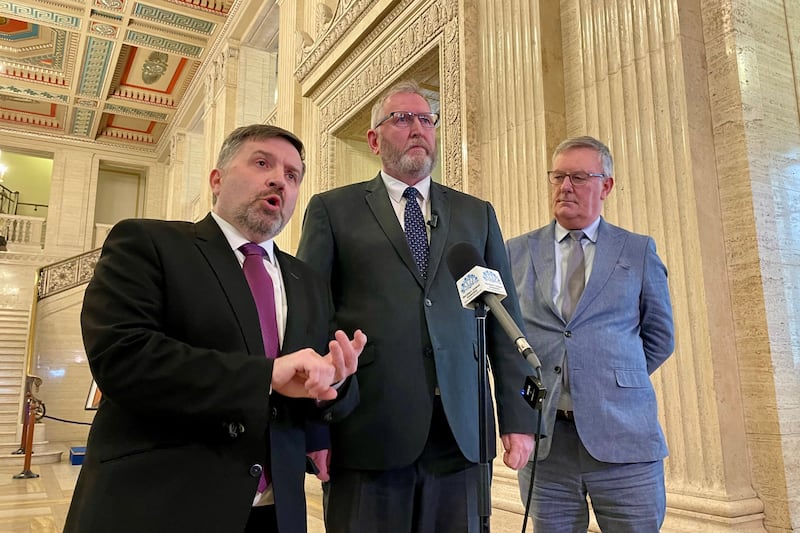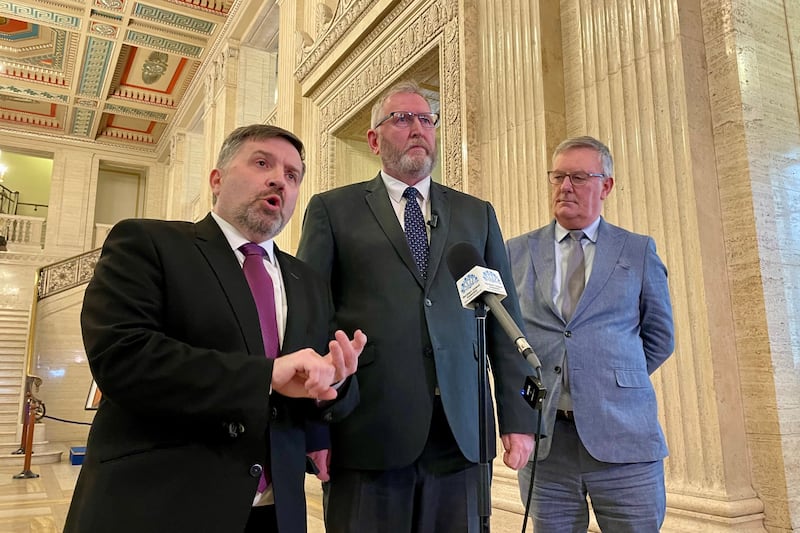A 10-YEAR plan to transform Northern Ireland's struggling health service has been launched by minister Michelle O'Neill.
The Stormont blueprint is the response to an independent analysis of the system by a panel of experts.
Describing the current health and social care system being at "breaking point", the Health Minister stressed the need for radical change.
Hospital closures are not envisaged in the action plan, but there will be a reconfiguration of the services provided by the network of existing facilities.
The Health and Wellbeing 2016: Delivering Together document is short on definitive targets and detailed goals, and is not costed.
Mrs O'Neill said on Tuesday, it was crucial to redesign the system in conjunction with health service workers and patients, with agreed actions only materialising after that engagement is conducted.
One of the more short-term objectives is the formulation of a plan by January to tackle lengthy waiting lists.
The plan emphasises the need to improve the health of the wider population with preventative steps and also to provide more care away from acute hospital settings.
Criteria will be developed to determine how to redesign the delivery of specific services such as stroke, diabetes and pathology.
Five services will be examined each year of the plan.
Mrs O'Neill said consensus on the Stormont Executive on the need for a major overhaul had presented the opportunity for a "fresh start".
"Changing the health system is the right thing to do, it's the right time to do it and it is right for the people who use it," she said.
"This change will be planned, managed, incremental- this is not a 'Big Bang'.
"Meaningful change does not happen overnight - this will take time, money and the support of staff, those who use our health and social care services as well as the support of Government.
"I want to acknowledge the hard work and dedication of all those working in the service; the depth of their commitment and compassion continues to astound me. Thank you for all that you do to improve the health and wellbeing of those who live in the north.
"That being said, the system itself is at breaking point. We face a number of challenges, not least demographic changes and considerable health inequalities which continue to persist. The way services are organised is constraining transformation and our ability to provide high-quality services," she added.
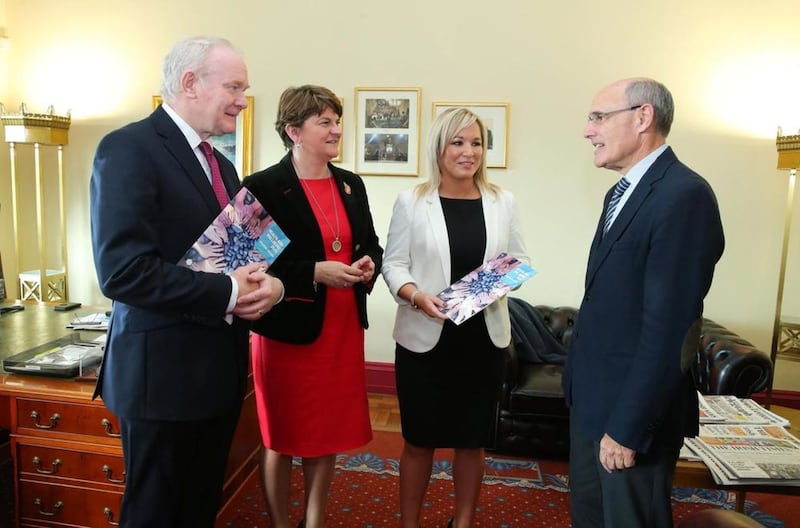
The minister's vision also sets out a series of actions within the next 12 months to start the journey of transformation
The six-person expert panel that assessed how the system is functioning and what changes are required was led by Spanish Professor Rafael Bengoa.
"I and my colleagues on the panel believe that the HSC system faces a stark choice," he said
"It can either resist change and see services deteriorate to the point of collapse over time, or embrace transformation and work to create a modern, sustainable service that is properly equipped to help people stay as healthy as possible and to provide them with the right type of care when they need it.
"We have tried to produce a report that will make a practical contribution to implementing change and which will support the minister's ambitious, and wholly necessary, road map to reform. Transformation will not be simple, but the panel has no doubt that Northern Ireland has both the people and the energy to deliver a world-class health and care system," he added.
The plan was officially endorsed at a meeting of the executive on Tuesday morning by both the First and Deputy First Ministers, who pledged to meet the challenge "head-on".
Concerns were raised however by the Stormont opposition over the failure of the Executive to include details on costs.
"The experience of how the last major policy of Transforming Your Care (TYC) fell apart due to a lack of funding guarantees must remain to the forefront of all our minds," Ulster Unionist Health Spokesperson, Jo-Anne Dobson said.
SDLP Health spokesman Mark H. Durkan said the minister must put "meat on the bones of her statement or risk losing public and stakeholder trust".
"She must begin now to detail the costing of her plan," he said.
Meanwhile the Alliance Party said they would oppose any delays in the implementation of the Bengoa report
“Progress cannot once again be fudged. There is excellence across much of the health service but what is now required is a more effective system to ensure that excellence is experienced by everyone accessing it," Health spokesperson Paula Bradshaw said.
Trade unions NIPSA and Unite welcomed the report's emphasis on the importance of staff in future planning, while The Royal College of General Practitioners in Northern Ireland supported the minister's plan to increase the number of GP training places to 111 per year by 2018
